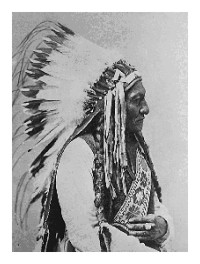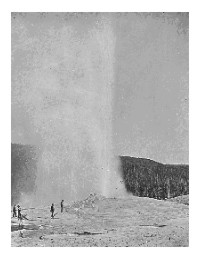Sponsor this page. Your banner or text ad can fill the space above.
Click here to Sponsor the page and how to reserve your ad.
-
Timeline
1870 - Detail
March 30, 1870 - The 15th Amendment to the Constitution is declared ratified by the Secretary of State. It gave the right to vote to black Americans. Race would officially no longer be a ban to voting rights.

The right to vote had not been granted within the 14th Amendment, which addressed citizenship and equal protection under the law, when passed in 1868, but not voting rights based on race. The right to vote was still in primary jeopardy, subject to state law, based on race, and sex, but few states wished, even in the north, to grant voting rights to African Americans, former slaves, or women. The 39th Congress began to address this problem, at least as far as race based voting rights, when it passed a statute granting voting rights to African Americans in the District of Columbia, all territories of the United States, and the Confederate states if they wished readmission to the Union.
After the election of President Grant, and within the lame duck session of the 40th Congress, Congress passed the 15th Amendment and sent it to the states for ratification. Republicans had been buoyed by Grant's election and now considered passage of black suffrage an important part of their platform. The debate prior to passage was intense with some wishing for the eventual outcome that controlled only race, others wishing to prevent education or property own qualifications being used in conjuction with universal male suffrage, or those that allowed more latitude to the states with their standards while addressing the race question.
The House of Representatives voted 144 to 44 in favor, with 35 abstentions. No Democrats supported the bill with three Republicans voting against it. In the Senate, passage by a vote of 39 to 13, with 14 abstentions. Again, no Democrats favored its passage and five Republicans voted no; some voting no favored banning poll taxes and literacy tests which were not included in the text.
Since the 15th Amendment did not address the right of women's suffrage, the debate amongst the groups fighting for that right split in their support. Lucy Stone's American Woman Suffrage Association, which were fighting state to state for women's suffrage, supported the amendment. The National Women's Suffrage Association of Susan B. Anthoney and Elizabeth Cady Stanton did not.
Ratification by the States
Once Congress passed the resolution for the 15th Amendment to the states, ratification began. Nevada was the first state to pass on March 1, 1869, and within that month were followed by West Virginia (March 3), North Carolina, Illinois, and Louisiana (March 5), Michigan (March 8), Wisconsin (March 9), Maine (March 11), Massachusetts (March 12), Arkansas and South Carolina (March 15), Pennsylvania (March 25). By the time Secretary of State Hamilton Smith certified the necessary states to ratify (needing 28), there were thirty states that had approved. All states would eventually adopt the resolution, the last being Tennessee on April 8, 1997.
Which states refused to ratify the 15th Amendment when initially addressed: New Jersey, Delaware, Oregon, California, Maryland, Kentucky, and Tennessee.
The first known black man to vote under the rights conferred by the 15th Amendment was Thomas Mundy Peterson in Perth Amboy, New Jersey on March 31, 1870. It was a local election for mayor. New Jersey had not yet passed the Amendment, voting it down on March 17/18, 1870. They would pass the 15th Amendment the next year on February 15, 1871.

Full Text, Congressional Resolution and 15th Amendment to the Constitution
At the third Session, Begun and held at the city of Washington, on Monday, the seventh day of December, one thousand eight hundred and sixty-eight.
A Resolution Proposing an amendment to the Constitution of the United States.
Resolved by the Senate and House of Respresentatives of the United States of America in Congress assembled, (two-thirds of both Houses concurring) that the following article be proposed to the legislature of the several States as an amendment to the Constitution of the United States which, when ratified by three-fourths of said legislatures shall be valid as part of the Constitution, namely:
Fifteenth Amendment - Right of Citizens to Vote
Section. 1. The right of citizens of the United States to vote shall not be denied or abridged by the United States or by any State on account of race, color, or previous condition of servitude.
Section. 2. The Congress shall have power to enforce this article by appropriate legislation.
Photo above: The First Vote, 1867, A.R. Waud, Harper's Weekly. Courtesy Library of Congress. Photo below: Hiram Rhodes Revels, first African American sworn into office as a Senator, Mathew Brady. Courtesy Library of Congress. Info Source: Findlaw.com, Cornell University; Ourdocuments,gov; Library of Congress; Wikipedia Commons.




